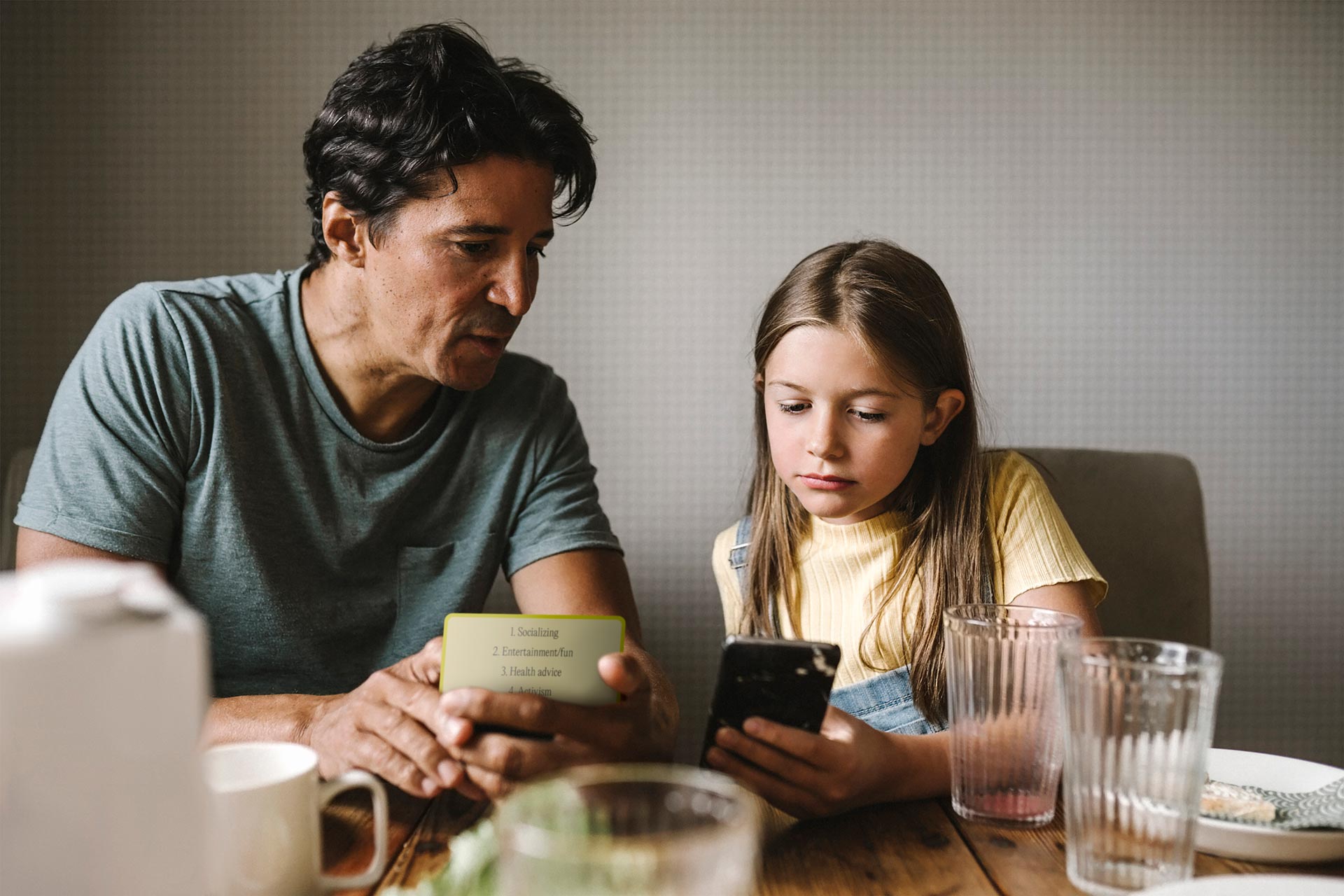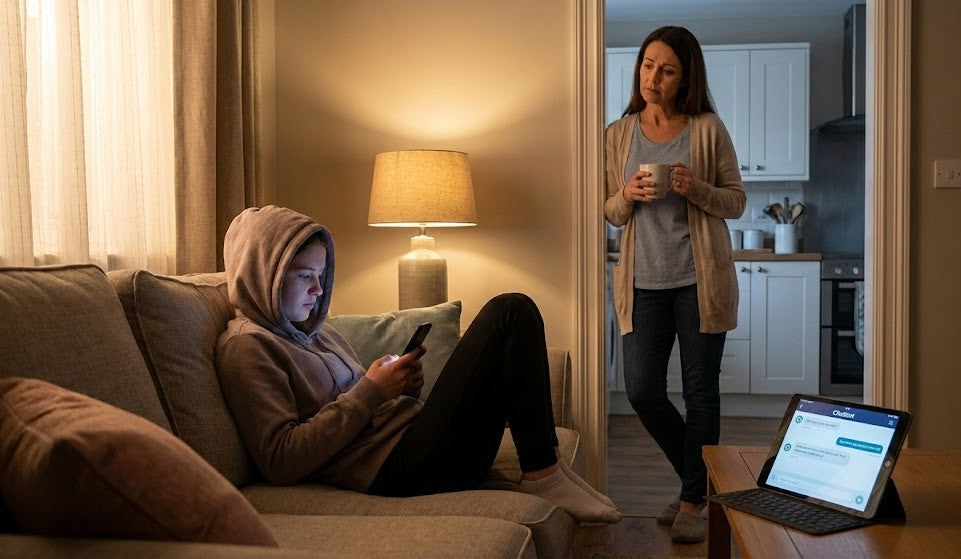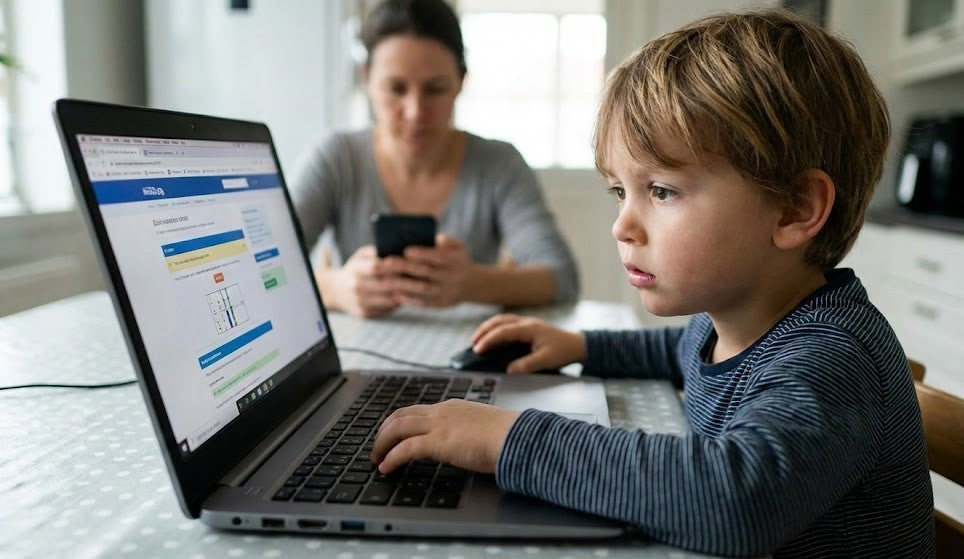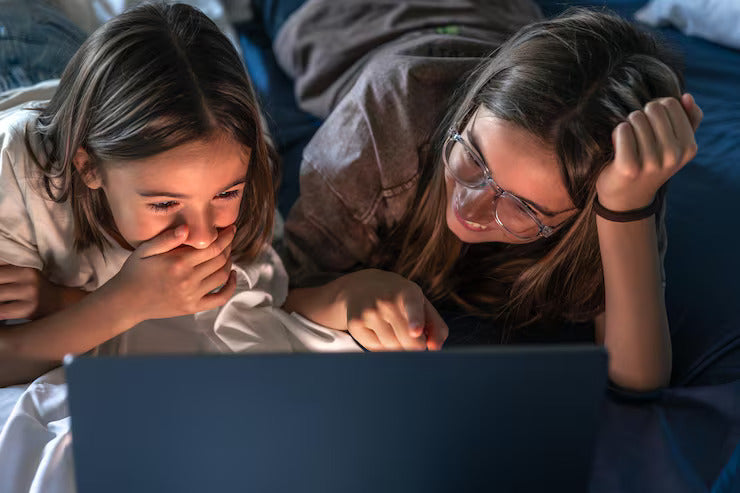3 things you have to talk about Today to keep your child safe
While there are many ways to keep kids safe online, few are more important than talking about and establishing these three things.
Whether you have done the essential conversation cards or you are just coming to Raising digital citizens to learn more about connecting with children in their online lives, we highly encourage you to talk together today about what not to share, who your child can go to if they ever feel scared, and that they should always feel safe asking for help.

1. What not to share
Explain why things like full names, addresses, passwords, and (sometimes) real-time locations shouldn’t be shared online, even with friends. Help them understand that some information can be misused or shared without their consent.
2. Make a list of whom they can go to if they feel scared or upset
Make a list together of trusted adults or older siblings they could go to if they were upset. Make sure your child knows they can always come to you - or another trusted adult - if something online makes them uncomfortable or scared. Reassure them that no matter what has happened, you’re there to listen and help, not to judge.
3. Let them know they will never get in trouble for coming to you for help
Many kids hesitate to tell parents or other adults about online problems because they’re afraid of punishment or losing access to their online lives. This can be the most dangerous situation to be in-sitting alone in fear, sadness, or upset. Let your child know that they will never get in trouble for being honest about something upsetting, whether it’s a mistake or something they’ve encountered. We all make mistakes.





